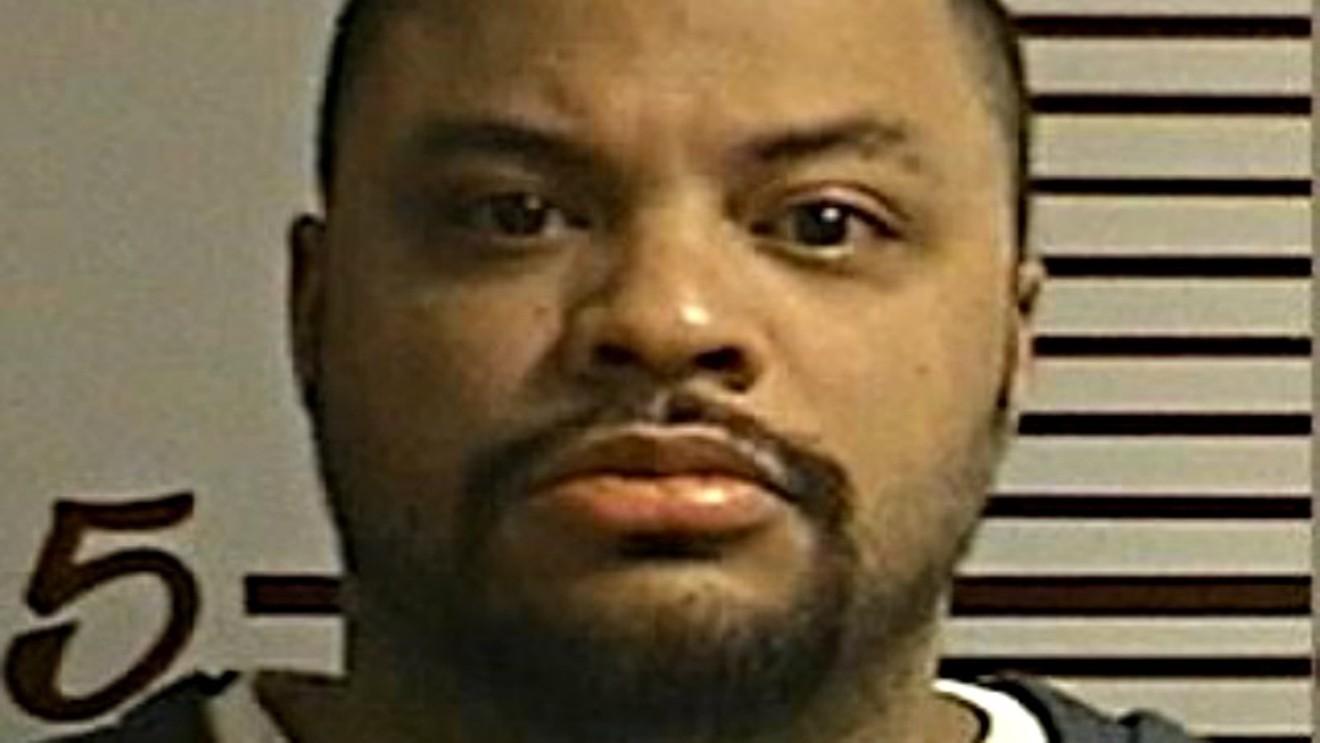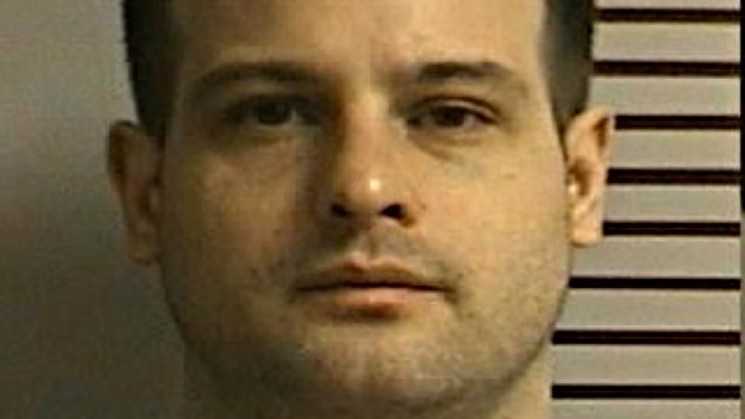Former Denver District Attorney Mitch Morrissey is blunt when asked about several cases in which Beth McCann, his successor as Denver DA, has resentenced men who were convicted of felony murder and other charges when they were juveniles during the 1990s, resulting in their time behind bars being substantially lessened. In his view, she's breaking the law.
"You can go in for one or two counts of felony murder and resentence them on those," Morrissey says about the sentence-lowering for several inmates, including Leroy Gardenhire III, whom he personally prosecuted, "but not on the entire case. That's where she's acting illegally, and that's where a judge should be stopping that — saying, 'This isn't something I have the jurisdiction to do.'"
Ken Lane, McCann's spokesman, refutes Morrissey's assertions. He emphasizes that "these resentencings, by judicial order after hearings, not DA action, are pursuant to duly enacted state law."
But George Brauchler, 18th Judicial District DA and candidate for Colorado attorney general, is also bothered by the McCann resentencings. "I've never seen a district attorney go back in time and undo verdicts," he says. "That's unprecedented."
This isn't Brauchler's only disagreement with McCann. The two are on opposite sides of a court fight involving a statute that governs juvenile resentencing for felony murder — an offense that holds individuals responsible for a homicide during the commission of a crime (a burglary, a home invasion, etc.) even if he or she didn't pull the trigger or otherwise directly cause it.
In 2012, the U.S. Supreme court declared sentences of life without the possibility of parole (shorthanded as LWOP) for crimes committed by juveniles to be unconstitutional.
This didn't immediately upend Colorado law, since six years earlier, in 2006, the General Assembly nixed the state's LWOP rule as it pertained to juveniles, changing the sentences to life with the possibility of parole after forty calendar years — a decision that affected 48 people by Brauchler's calculations and fifty by McCann's. But in 2016, the state legislature went a step further, creating a new sentencing range of thirty to fifty years with ten years of mandatory parole for juveniles convicted of committing felony murder between 1990 and 2006.
This may not seem like a big change, but even half-century jolts under the measure would likely correspond to fewer years served than the four decades mandated in 2006, since they take into account so-called good time — rewards for trouble-free conduct that commonly reduce sentences by a third. Using this math, fifty years in stir would become 33.5 years, and thirty years could be shortened to twenty.
Enter Curtis Brooks, who became a prison rehabilitation role model after being convicted of felony murder for a homicide in 1995, when he was fifteen. His story is the sort that inspired the 2016 legislation, and Brauchler, too, feels Brooks should have his sentence shortened and has encouraged Governor John Hickenlooper to consider the matter.
But Brauchler still has problems with the felony murder law, since he feels it applies to a "closed class" — sixteen of the 48-50 people the 2006 legislation covered who had felony murder convictions.
"That makes it 'special legislation,' and there's a prohibition against it in our state constitution," Brauchler argues. "So when Curtis Brooks was about to be resentenced, we filed a motion with the court to say, 'Hey, we think this is unconstitutional,' and guess what: The judge, Judge Samour [that's Carlos Samour, who oversaw the trial of the Aurora theater shooter], agreed with us. Last year, he ruled it was unconstitutional. But then, the day before Brooks was about to be resentenced to life with parole eligibility at forty years, the judge issues another order that says, 'I changed my mind. I do think it's constitutional, and we're going to move forward with sentencing on the thirty-to-fifty-year window.'"
This was objectionable to Brauchler "in two ways," he goes on. "First, we hadn't prepped the victim for the thirty-to-fifty-year sentencing. And this wasn't my only case like this one. Of the three other cases of mine that are potentially eligible for this, one of them is a guy named Alexander Pogosyan, who participated in the shotgun murders of five people — and the idea of that guy being eligible for parole after thirty to fifty years, well, I just couldn't do that. And if the best, smartest judge I've ever been in front of, Judge Samour, can go back and forth on this, I want the Colorado Supreme Court to tell us what the answer is."

George Brauchler is the DA for the 18th Judicial District and is running for Colorado Attorney General.
Facebook
Here's the brief's example of how that's possible:
For acts committed as a juvenile between 1990 and 2006, Offender A was charged as an adult and convicted of murder on two theories: (1) murder after deliberation; and (2) felony murder. The trial court entered judgment of conviction, either on a generic count of murder (supported by both theories), or a single count of murder after deliberation. The court then sentenced A to life without parole.Under this scenario, Offender A's murder-after-deliberation conviction essentially goes away and is replaced by felony murder — and he would therefore be eligible for resentencing under the thirty-to-fifty-year standard. But the concept isn't theoretical. McCann has already used it at least four times.
Years later, Offender A filed a post-conviction motion, claiming (among other things) that his murder conviction was obtained in violation of the United States Constitution. For any number of plausible reasons, Offender A’s claims had greater force against the after-deliberation count than they did against the felony-murder count. Consequently, when Offender A prevailed (either through litigation or by agreement of the parties), the trial court amended the judgment to reflect a conviction for felony murder.
Arguably the least controversial of these cases involved Trevor Jones, who was highlighted in a 2007 PBS piece about Colorado's felony murder statute. The report notes that on November 21, 1996, Jones, then seventeen, and his sixteen-year-old friend, Matt Foley, engaged in a bogus gun-sale scheme that ended with Foley being fatally shot in the head. Jones maintained that the shooting was accidental, but a jury convicted him of reckless manslaughter as well as robbery — a combination that was transformed into felony murder under the state's laws at that time.
Last August, McCann spokesman Lane confirms, Jones was resentenced to 42.5 years in prison and ten years of mandatory parole for felony murder only, without any mention of the robbery charge.
More egregious to former DA Morrissey is the matter of Gregory Romero, a former gang member who was convicted of two counts of first-degree murder after deliberation, as well as two more for felony murder. "That was a double homicide," Morrissey says of the 1995 slayings. "They went in and shot up this guy Terrance Mayo and his girlfriend [Rachelle Peterson], who was pregnant, at the behest of Mayo's ex-girlfriend [Cheryl Armstrong]. They just went in there and shot them up, multiple times."
At his original trial, Romero's lawyer insisted that his client had been drunk at the time in question and hadn't participated in the actual killings. But he was convicted of two counts of first-degree murder after deliberation in addition to two felony murder offenses anyhow. Last month, though, Lane reveals that "the two 'after deliberation' convictions were merged into two new felony murder counts to which he pleaded guilty and was sentenced to 43 years in prison plus ten years mandatory parole for each of those two counts, to run concurrently."

Gregory Romero was sentenced to life without parole in September 1995.
Colorado Department of Corrections
Next comes Paul Littlejohn, who was fifteen when he and fellow gang member Raymond Johnson took part in a 1995 drive-by shooting during which a child named Casson Xavier Evans, nicknamed Biscuit, was killed. "That little boy was killed while sitting in a car seat," Morrissey recalls. "It happened when those guys drove by the second night in a row."
Littlejohn was originally convicted of first-degree murder/extreme indifference and sentenced to life without the possibility of parole. But last December, Lane notes, he pleaded guilty to a new count of felony murder that essentially replaced first-degree murder/extreme indifference and was given 35 years in prison and ten years of mandatory parole.
"That's changing the outcome of the trial," Morrissey believes. "You can't undo a sentence after it's final. So what [McCann] is doing is commuting sentences, and that's not what a DA does. It's up to the governor's office to grant pardons and commute sentences, not the DA."
Nonetheless, the resentencing that most frustrates Morrissey involves Gardenhire, whom he initially helped put behind bars along with his father, Leroy Gardenhire Jr., after a 1992 murder that took place after the pair mistakenly thought a man named Tommy Lee Emory had stolen their car.
"There were two victims in that case — Tommy, who was killed, and another victim, who was kidnapped along with Emory," Morrissey allows. "But the other guy was able to get away from the Gardenhires after watching them torture Tommy to death. They pistol-whipped these guys, and the living victim had to watch as they tortured Tommy — the son, who shot him in the leg, and the father, who killed him."
The younger Gardenhire, who was seventeen when Emory was killed, earned convictions for second-degree murder and both first- and second-degree kidnapping in addition to felony murder. For these offenses, he was given four life sentences, with the two kidnapping beefs running consecutive to the other three. But in May 2017, he was resentenced to forty years in prison plus ten years of mandatory parole for the felony murder and second-degree murder convictions, Lane says.
This leaves Morrissey wondering what happened to the kidnapping sentences. "Where did they go?" he asks, adding, "All of those cases were final and none were on appeal — so to give this guy that kind of break is illegal. The judge should have said, 'Ms. McCann, I don't have jurisdiction to do that. We're here to resentence on felony murder, not to undo what a jury verdict did and a judge who heard the evidence did as far as sentencing goes. It makes me wonder if they ever told the survivor that they were going to undo the conviction for kidnapping him."
When asked about this, Lane says, "Victims did speak at these hearings. I don't know that every victim or victim's family testified, but when you have these sentencing hearings, that's what you do."
Regarding Morrissey's assertion that McCann is breaking the law with her resentencing efforts, Lane dismisses them as "silly" and notes that "Mr. Morrissey is no longer the district attorney." He also says, "When you've got a DA in another jurisdiction and a former DA opining about the Denver district attorney, I find that fascinating" — an observation that echoes Brauchler's curiosity about why McCann filed her amicus brief in the Brooks matter.
But Morrissey holds firm. McCann "isn't the one to decide if somebody has been rehabilitated or not," he says. "She could write a letter to the commutation board, but it's not within her authority to do what she's doing here. I'm surprised groups that represents victims haven't stepped up and said, 'What are you doing, judge? You don't have the jurisdiction to do that. You can't stipulate away these sentences.' But no one's paying attention."
Click to read DA McCann's amended amicus brief in the Brooks case.

















